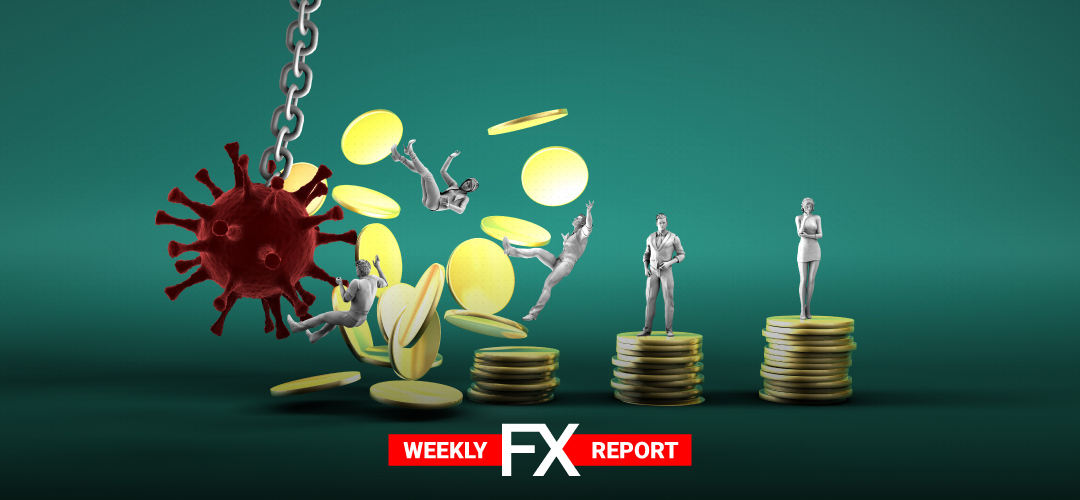Global financial markets were already struggling to deal with enormous economic uncertainty while optimism around the re-opening of the economies and stimulus fades away.
There is a number of growing pains for investors including soft data, the absence of a (COVID-19) vaccine and rising geopolitical tensions. Governments across countries have also announced heavy spending to support economic growth.
Economic precariousness from COVID-19 lockdowns dominates with central banks slashing interest rates and pumping in huge sums of money into banking systems.
On the trade front, investors were rattled on Friday when China proposed imposing national security laws on Hong Kong. Beijing unveiled details of the legislation that critics see as a turning point for the former British colony. The proposal drew the wrath of Hong Kong residents who defied social distancing rules and protested on streets.
China’s move to impose a new security law on Hong Kong heightened concerns about the future stability of the city and global trade prospects. The United States warned China’s move could lead to U.S. sanctions.
Actually, the response was immediate. The U.S. Commerce Department responded by adding 33 Chinese companies and other institutions to a blacklist for human rights violations. China warned on Monday that it will take countermeasures if the United States insists on undermining its interests.
Sino-U.S. ties have nosedived since the coronavirus outbreak. The administrations of President Trump and President Jinping trade barbs over the pandemic, including accusations of cover-ups and lack of transparency. The two economic giants have also clashed over Hong Kong, human rights, trade policy and U.S. support for Chinese-claimed Taiwan.
LQDFXperts – Optimism around re-opening fades away
Economic numbers remain soft, as the major economies try to regain their footing. However optimism around re-opening fades away. Trading volumes on Monday will be lower across the board with the U.S., UK and some countries in Asia closed for holidays.
EUR/USD posted considerable gains last week, as the pair broke above the 1.09 level. After two consecutive weeks of gains, the dollar ended last week down around 1%.
GBP/USD showed limited movement last week. The week starts with a bank holiday and there is just one event on the schedule. The British economy continues to struggle, as the country has been hit hard by the Covid-19 pandemic.
Dollar/yen posted slight gains for a second straight week. Japanese consumer numbers will probably be soft in the upcoming week. Japan’s economy sank into a recession, as the economy contracted by 0.9% Q1. The economy contracted in Q4 by 1.6%. The Japanese yen continues to hold its own against the U.S. dollar, as both currencies are considered safe-haven assets. Still, the U.S. economy is in much better shape than that of Japan.
The Aussie rebounded last week, as AUD/USD jumped close to 2% despite corona crunch on economy. The RBA minutes noted that Australia is facing an “unprecedented” economic contraction due to Corvid-19. In the near-term, the outlook for the Australian dollar is negative. The currency has shown strong volatility since the Corvid-19 pandemic, and the significant movement could continue.
The Canadian dollar rebounded last week, posting modest gains. USD/CAD closed the week at the 1.40 level. The outlook for the Canadian dollar remains negative in the near term. Inflation and employment numbers were soft last week, and a decline in the March GDP could weigh on the Canadian dollar.
START TRADINGThe week ahead – Investors brace for weak U.S. and German GDPs.
Gross Domestic Product figures due across major economies later this week offer the next insight into the economic recovery outlook. Investors brace for weak U.S. and German GDPs.
- On Monday (25.05) the German Final GDP will provide details about Germany and Europe’s economies. Germany is the locomotive of the Eurozone, but the economy has been hit hard by the Covid-19 pandemic. The initial estimate for Q1 GDP came in at -2.2% and the final estimate will probably confirm this release.
- Thursday (28.05) and Friday (29.05) are full of data: German Prelim CPI, French Preliminary GDP, US GDP, US Unemployment Claims, Eurozone Inflation and Canadian GDP.
- German CPI posted a gain of 0.4% in April. Analysts are projecting inflation to fall to 0.1% in the initial May reading.
- The Eurozone’s second-largest economy, France, contracted by 5.8% in Q1 and the second-estimate reading will probably confirm this figure.
- The U.S. economy has been hit hard by the Corvid-19 pandemic, and the initial read for Q1 showed a sharp contraction of 4.8%. The second US GDP estimate will probably confirm this figure.
- US Unemployment claims have been dropping slowly, pointing to a slight improvement in the employment sector. Last week, unemployment claims fell to 2.43 million, down from 2.98 million a month earlier.
- Eurozone inflation remains at low levels. In April, the headline figure came in at 0.3%, while core reading came in at 0.9%.
- Canada is unique in that it publishes Gross Domestic Product figures on a monthly, rather than quarterly basis. The economy was stagnant in February, falling from 0.1% to 0.0%.
Follow this week’s economic calendar.
PLEASE NOTE The information above is not investment advice.
Sources: Reuters, CNBC, FX street
